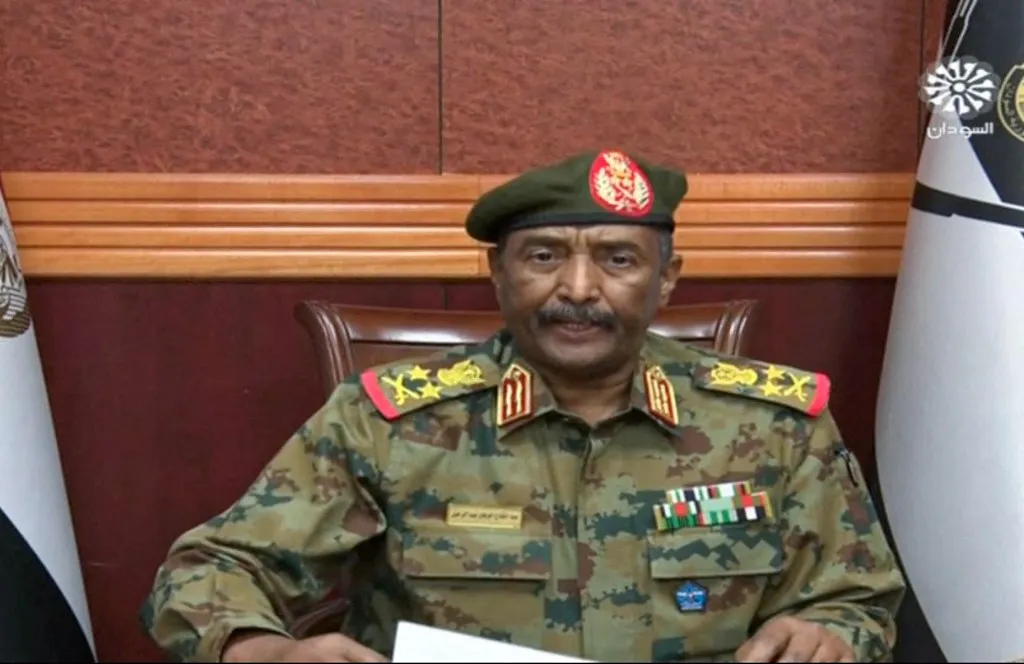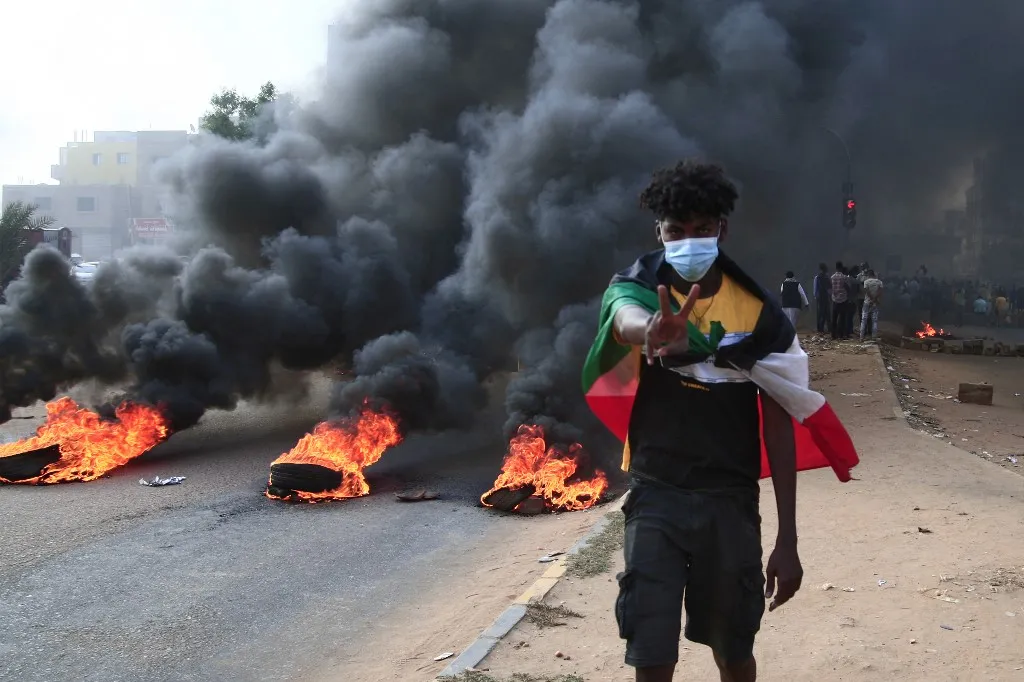Military officers in Sudan launched a string of arrests of government officials early on Monday, and seized control of government buildings.
The coup was led by the head of the transitional government, General Abdel Fattah al-Burhan, who dissolved the parliament and declared a state of emergency.
An “independent and fair representative government” will assume power until a new one is elected in 2023, he said in a televised statement.
The prime minister Abdalla Hamdok and other members of the cabinet, including the minister of industry Ibrahim el-Sheikh, were arrested in the early hours of Monday morning.
The prime minister, who is under house arrest in an undisclosed location, called on the people of Sudan to “occupy the streets to defend their revolution,” the Ministry of Information said in a statement posted on Facebook on Monday.
Protests swelled across Khartoum, with tyres reportedly burning in the streets. Outside the capital’s military headquarters live bullets were fired at protesters, the Ministry of Information said.
Military forces stormed the building of Sudan’s state broadcaster in Omdurman city and arrested staff, it added.

A blow for Sudan people and US policy
A foiled coup attempt last month unleashed bitter rivalries between civil society groups and the military who have been locked in a power-sharing agreement since the overthrow of Omar al-Bashir in 2019.
The joint military-civilian power-sharing ruling body, Sudan’s Sovereign Council, headed by Burhan, was also dissolved, throwing plans for it to rule until elections in 2023 into disarray.
The coup comes just three days after a million person march for civilian rule swept the capital, says former CIA officer and director for African affairs at the National Security Council, Cameron Hudson.
“But it also can’t be emphasised enough that this, beyond being first and foremost a major blow to the aspirations of the Sudanese people, is also a major defeat for the US/international agenda to incentivise a democratic transition and a major setback to similar efforts in Chad, Mali, Guinea where military governments are hiding under the banner of civilian transitions,” he said.
“If we can’t get Sudan right with overwhelming amounts of diplomacy, money and high level attention, it’s hard to imagine those others succeeding with less.
No surprise
The military’s seizure of power comes as no surprise, says Rashid Abdi, a Horn of Africa analyst at Kenyan think-tank Sahan.
“[The] Army had no intention of handing over power to civilians from the start.”
The takeover risks stoking regional tensions in a decades-old border dispute with neighbouring Ethiopia, he adds.
Clashes between Sudanese and Ethiopian forces flared last year over Al-Fashqa, a swathe of fertile farmland that Sudan says falls within its breadbasket, Gedarif state.
Ethiopia rejects the claim, demarcated according to the colonial-era treaties of 1902 and 1907, as Ethiopian farmers have since settled there.
“Ethiopia should now worry more. Burhan is even more hardline on Fashqa than Prime Minister Hamdok was. Burhan is a native of Gedarif and has great attachment to contested land,” Rashdi says.
Economic turmoil
After decades of sanctions and isolation, Sudan has been pressing ahead with painful reforms. In June the government decision removed subsidies on petrol and diesel, bringing fuel prices in line with import costs.
The move will save the government several billions of dollars per year, and is a key plank of a 12-month IMF programme that ended in June with a decision by the fund to provide comprehensive debt relief to the country.
At a Paris summit in May, Sudan cleared the final hurdle to securing much-needed relief through the IMF-World Bank Highly Indebted Poor Countries (HIPC) initiative, as IMF member countries pledged $1.4bn bridge loans to clear Khartoum’s arrears to the fund.
Sudan’s military-civilian coalition government has been attempting to turn the economy around after decades of isolation from global markets.
The country’s removal from the US state sponsors of terrorism list in December set in motion the country’s reintegration into the global economy after the ousting of long-time strongman Omar al-Bashir in a 2019 popular uprising. But the country is still contending with $60bn in foreign debt.
The secession of oil-rich South Sudan in 2011 exacerbated fiscal woes. As part of a 2012 peace deal to end war between the two, South Sudan pledged to pay the north $3bn to use its infrastructure to export crude from its oilfields, a sum that Juba hopes to finish paying off in 2021.

Want to continue reading? Subscribe today.
You've read all your free articles for this month! Subscribe now to enjoy full access to our content.
Digital Monthly
£8.00 / month
Receive full unlimited access to our articles, opinions, podcasts and more.
Digital Yearly
£70.00 / year
Our best value offer - save £26 and gain access to all of our digital content for an entire year!
 Sign in with Google
Sign in with Google 



